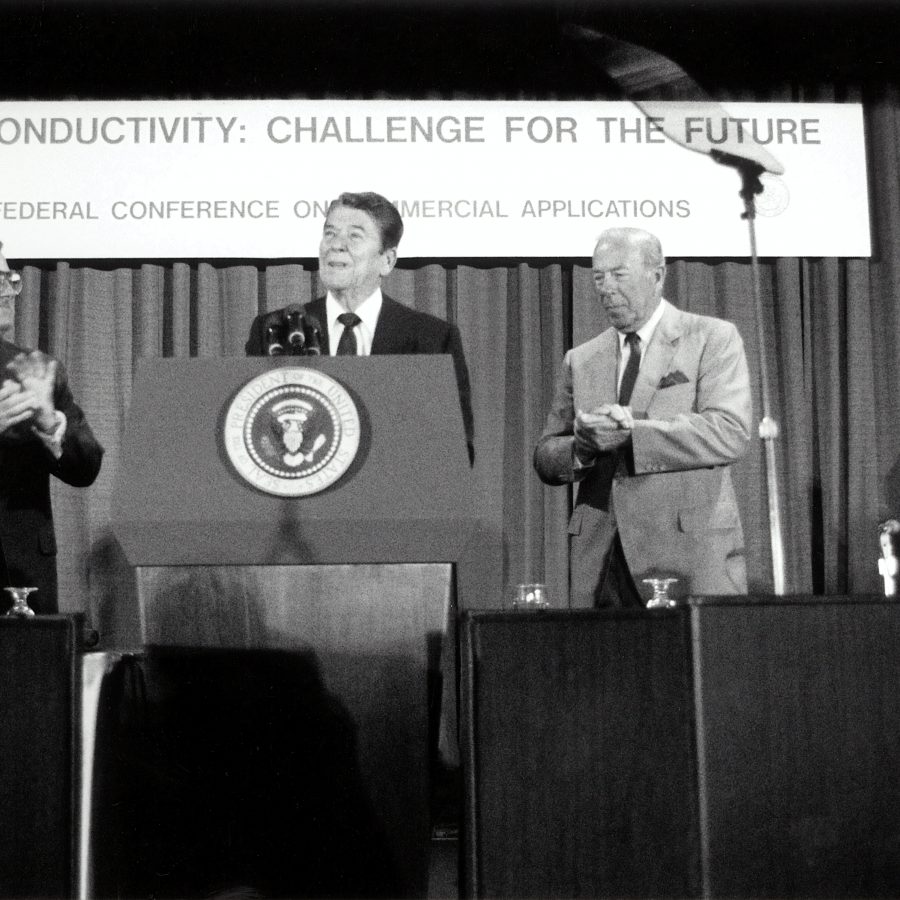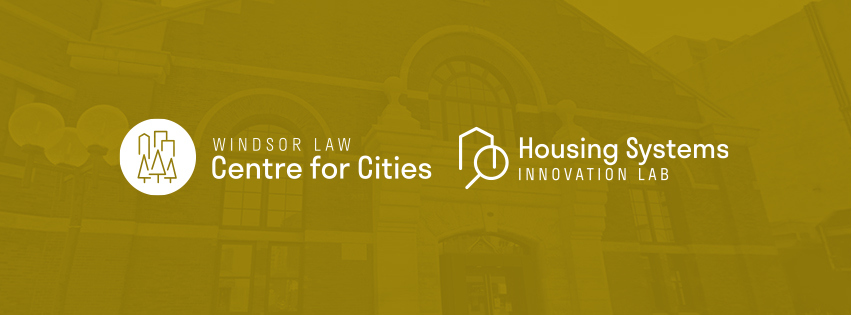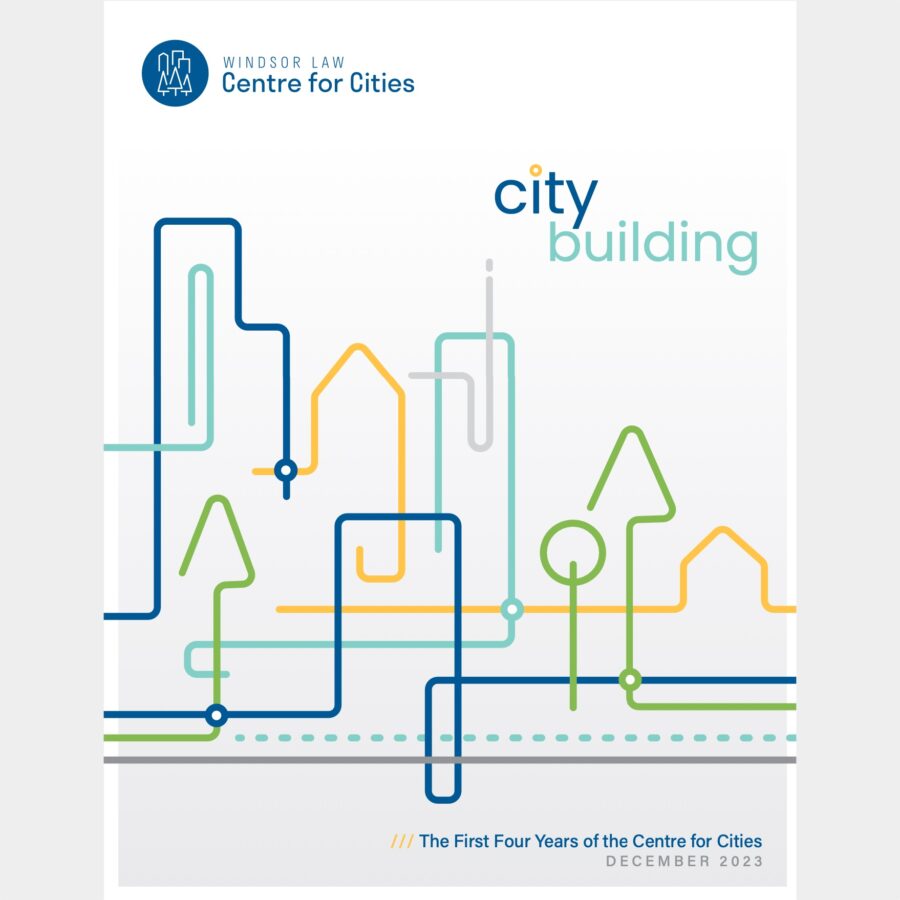
Blog: Reagan-era politics still loom large in North American cities’ climate policies
(17 February 2020) By Adrian Halpert (Windsor Law 3L student, Cities and Climate Action Forum member).
Although the United States 1980 federal election took place almost 40 years ago, it still exerts a strong influence over Canadian and American environmental policy today. Not only do we see this at the federal level, but also at the provincial and municipal levels of government as well.
In the 1970s, the West was experiencing a severe economic slump aggravated by decreased petroleum production and a shortage of fuel. By 1979, the energy shortage has grown so severe that long lines at gas stations had become a common sight across the United States, and some states had even started rationing fuel. As part of his response, the President of the US at the time, Jimmy Carter, invested in renewable energy sources, showing off his new policy by becoming the first US president to put solar panels on the White House. He also urged Americans to conserve energy, encouraging people to use public transportation instead of private cars, and keep thermostats low during the winters.
The apotheosis of the energy crisis came on July 15, 1979 when President Carter delivered his infamous “Malaise Speech”. In the half hour address, he placed a large part of the blame for the energy crisis on American worship of “self-indulgence and consumption”, and promoted the idea of conservation.
A few months later in 1980, Ronald Reagan challenged Carter for the Presidency. He exploited the content of Carter’s Malaise Speech, claiming Carter’s message of conservation was defeatist in the face of adversity, and citing Carter’s energy policy as contributing to the economic slump that had been crushing the United States and the West. Reagan instead encouraged individual self-fulfillment through consumerism, and claimed that economic deregulation, especially for fossil fuel companies, would kick start the economy. This became part of an economic program that was later termed “Reaganomics”, which placed environmental considerations very low on the priority list.
Reagan’s surprise landslide victory and the subsequent economic boom, which saw the national wealth of the United States grow by 33% between 1982-1988, convinced political strategists that Reaganomics was the way to get elected, and that Carter’s message of investing in renewables and energy conservation were the tools of political suicide. Even now, 40 years later, the shadow of Carter’s defeat can be felt as some politicians in the West avoid touching the subjects of renewables and conservation.
However, in 2020 the world is a very different place than what it was in 1980 and is facing a different set of challenges. Climate change has become a much more serious topic as people around the world try to cope with the threat of rising sea levels and increasingly wild weather. A rising global population, almost double what it was in 1980, has meant a large increase in energy consumption, and with it a corresponding rise in GHG emissions which contribute to global warming. The renewable technologies Carter was promoting in the late 1970s were in their infancy and, at the time, prohibitively expensive. Solar, for example cost $76.67 per watt in 1977. As of 2017, the cost has dropped to $0.25 per watt.
The world is a very different place, so why do political thinkers hang onto ideas from such a distant era? In short, the same ideas of capitalist consumption and status through ownership that held such sway in 1980 are still prevalent in Western culture. A recent example was Doug Ford’s very Reagan-esque message of cutting taxes and deregulating businesses, which carried him to a sweeping victory in the 2018 Ontario Provincial election. Taking action on climate change was little more than a vague footnote in Ford’s platform. Some municipalities, too, concerned about disrupting “business as usual”, have done little to take action on climate change.
As simple as the moral of this story might look from an environmental perspective, Carter right, Reagan wrong, there’s more to this story. Reagan actually had an established record for environmental protection when he served as governor of California from 1967-75, setting aside more parkland than any other governor before or since. In 1980, his economic plan, dubbed “voodoo economics” by opponents, was controversial and untested. However, Reagan was a very savvy politician who had a concrete plan to confront the immediate economic problems facing the US, engage an audience, and inspire people to embrace new ideas. Carter, for all his good intentions and idealism, was less skillful, offering what may have seemed like pie in the sky solutions to the energy crisis which ignored the more immediate economic challenges confronting the West at the time. Instead of just looking at whose platform won or lost in 1980, the takeaway is that by confronting an immediate problem with a concrete plan, and engaging with people and their interests, people will embrace new ideas and commit to change. This is a lesson that we can apply at all levels of government, federal, provincial and municipal. It is interesting to note that Reagan believed that many functions of government are better performed at the regional or municipal levels, which are closer to the people. When thinking about climate change, municipal governments have legal jurisdiction over roughly half of all GHG emissions, meaning they have a particularly important part to play in taking climate action.
In 2020, we live in a very different world than we did in 1980, and are facing a very different set of challenges. Cities have exploded in size and influence, impacting our political and social worlds and our relationship with the environment. Our technology is considerably more efficient than it was in 1977, enabling us to take actions to fight climate change in ways we never could before. Municipalities have a key part to play in stepping up to fight climate change. Now all we need are forward thinking, savvy politicians who know this.



